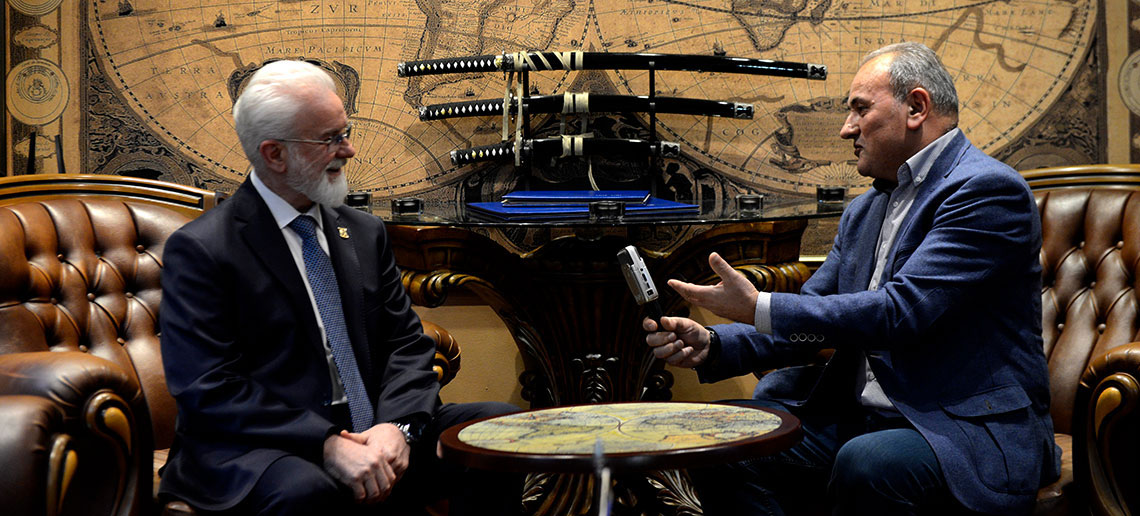In his guest appearance for Macedonian Radio - Radio Skopje, Rector Milenkovski today gave answers to many current questions that plague Macedonian education today. The rector started the conversation with a general assessment that education in our country is left on the margins and that, unfortunately, Macedonian students, high school students and students are very far from European, and even further from American higher education, both in terms of quantity and in regarding the quality of education they receive. Emigration or migrations, which are constant phenomena on the Balkan Peninsula, and which also exist among our neighbors, began to take place on a massive scale from 2016 until today, and the rector located the reason for this precisely in the fact that each of us sees that the state and institutions become dysfunctional.
"Not everyone can be the minister of education. To be a minister you have to be a teacher. If you are not a teacher, you cannot be the Minister of Education either, and being a teacher is the noblest job you can do in your lifetime", emphasized Rector Milenkovski, who himself started his professional career as a geography teacher in Primary school. In the interview, the rector singled out several key reasons for the disastrous situation with education. He pointed out that the bad personnel choices for the post of minister since independence until today, which seem to have only daily political value, are perhaps the main culprits for the situation. As another reason, Milenkovski singled out our law on higher education, which, although it has been changed many times, has never been adapted to European standards. Personal comfort and the comfort of the institutions, on the other hand, are the reasons why the European credit transfer system (ECTS) is not consistently implemented. All this, according to Milenkovski, gives extremely bad results to higher education in the country today.
Regarding the institution he manages, the rector emphasized that since its foundation, it strives to work according to the highest standards. "Our diploma was prepared in accordance with the work methodology of our University. It is American or European, and we took it from European Croatia. That methodology is called measurability of knowledge. We do not have oral answers in four open exam sessions. The tests from the colloquiums or from the final exams are coded, and they are not reviewed by the professors, but checked by a scanner and a special program," Milenkovski explained the University's work methodology. The diploma supplement issued by this University has three different grades.
"The first grade students receive is based on the national grading system – from 5 to 10, the second grade in the same vertical is the percentage grade according to the European higher education system, and the third grade is the adaptability of our work program. This means that in our diplomas there are three grades equivalent to the student's knowledge, and they can be read anywhere in the world", explained Rector Milenkovski, continuing that the University has all the necessary accreditations and work permits, as well as the TEDQual diploma for quality in higher education, which is awarded by the World Tourism Organization within the framework of the United Nations.
We received this diploma in 2014, after creating a working material of 900 pages, and we were checked by world professors who are accredited as auditors for higher education. We draw experiences for our work from universities that are members of a knowledge network within the World Tourism Organization, of which we are also a member. There are about 170-180, if not 200, that are currently members, among which are, for example, the American George Washington University, or the Paris Sorbonne," Milenkovski pointed out.
At the end, the rector promotionally announced the new name of the University - University of Skopje. The inspiration, Milenkovski shared, came precisely from the colleagues with whom they participated in the meetings of the Executive Council and the General Assemblies of the World Tourism Organization, where they addressed with the new name of the university, University of Skopje.

